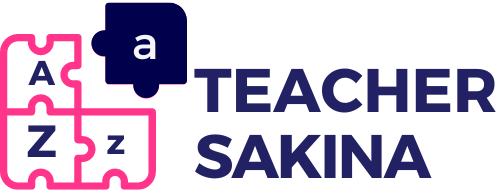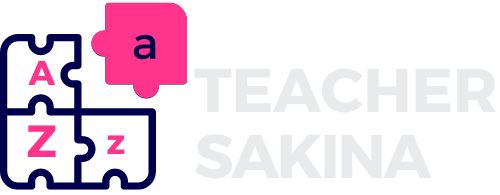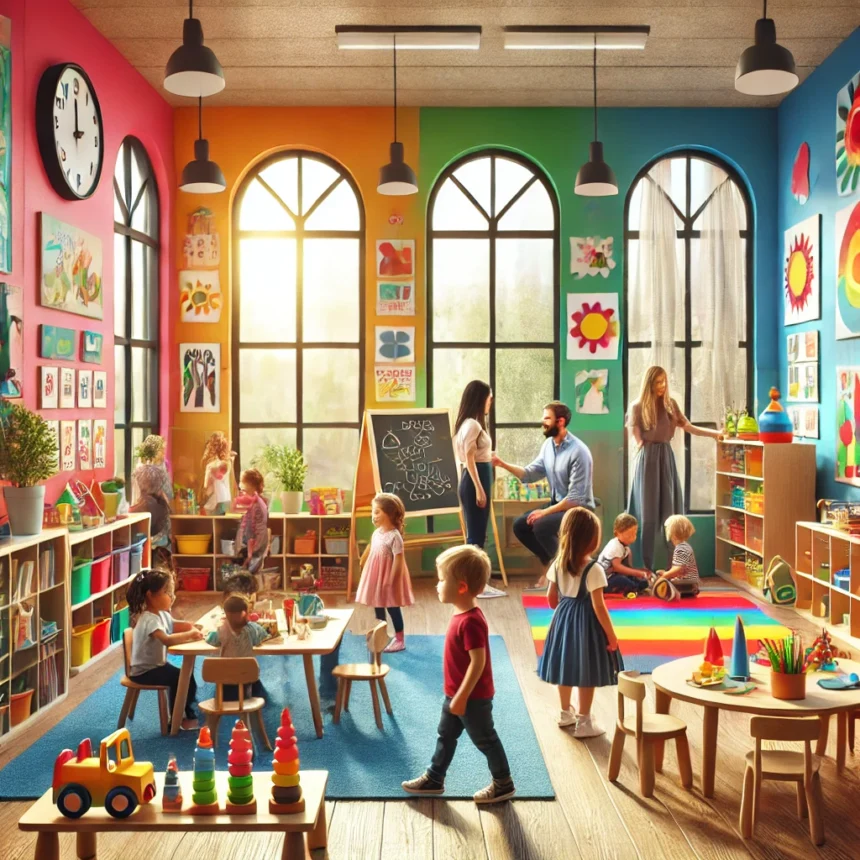preschool near me can be challenging for parents who want the best for their children.
Choosing the right preschool is a crucial step in your child’s educational journey. Whether you’re searching for a preschool near me, exploring Montessori options, or considering private preschools, this guide will help you navigate the various choices available.
Preschool is one of the most crucial steps in a child’s early development. It sets the foundation for future academic success, social skills, and emotional well-being. With so many choices available, finding the best preschool near me or choosing the right Montessori school can feel overwhelming. In this guide, we’ll cover everything you need to know about preschool options, benefits, and how to choose the perfect school for your child.
What is Preschool?
Preschool, also known as pre-K or pre-kindergarten, is an early childhood education program for children typically between the ages of 3 and 5. It helps prepare children for elementary school by teaching basic academic concepts, motor skills, and social interaction. Many parents search for preschool near me or Montessori schools near me to find the best options that fit their children’s needs.
Key benefits of preschool include:
- Academic Preparation: Preschool introduces children to reading, writing, math, and problem-solving skills.
- Social Development: Kids learn how to share, work in groups, and interact with others.
- Emotional Growth: Preschool helps children develop independence, confidence, and self-control.
Types of Preschools
There are various types of preschools available, each offering different teaching philosophies, curriculums, and environments. Here are some of the most popular preschool options:
1. Montessori Schools
Montessori schools focus on child-centered education. This approach allows children to learn at their own pace in an environment that encourages exploration, discovery, and creativity. Searching for a Montessori school near me can help you find schools that specialize in this philosophy.
Advantages of Montessori schools:
- Hands-on learning: Children use tools and materials designed for independent exploration.
- Mixed-age classrooms: Younger and older children learn together, benefiting from peer learning.
- Individualized education: Teachers guide rather than instruct, allowing students to choose their activities.
2. Private Preschools
Private preschools offer a wide range of programs and specialized curriculums. Many parents look for private preschools near me to find schools with smaller class sizes, unique learning approaches, and more individualized attention.
Benefits of private preschools:
- Small class sizes: More personalized attention for each student.
- Specialized curriculums: Some schools may focus on language immersion, arts, or STEM programs.
- Enhanced facilities: Private preschools often have access to more resources, including modern classrooms and advanced learning materials.
3. Public Pre-K Programs
Public pre-kindergarten programs are often free or low-cost and are typically offered by local school districts. Searching for public pre-k near me can help families find affordable options in their community.
Advantages of public pre-k:
- Cost-effective: Public pre-k programs are either free or very affordable.
- Standardized curriculum: These programs follow guidelines set by the Department of Education.
- Smooth transition to kindergarten: Public pre-k students often transition to the same elementary school for kindergarten, creating continuity.
4. Cooperative Preschools
In a cooperative preschool, parents are highly involved in their child’s education. Parents volunteer in the classroom and participate in the decision-making process.
Benefits of cooperative preschools:
- Community involvement: Parents build a close-knit community with other families.
- Cost-effective: Tuition is often lower since parents contribute their time.
- Hands-on experience: Parents get to participate in their child’s learning journey.
How to Choose the Right Preschool
When choosing a preschool, you need to consider several factors to ensure it’s the right fit for your child. Here’s a checklist to help you find the perfect school:
- Location: Searching for preschools near me will give you an idea of schools that are conveniently located.
- Curriculum: Does the school follow a traditional, Montessori, or Reggio Emilia approach?
- Teacher Qualifications: Are the teachers certified in early childhood education?
- Class Size: Smaller class sizes allow for more one-on-one attention.
- Safety and Facilities: Is the school clean, safe, and equipped with modern learning tools?
- Parent Involvement: Some schools encourage parental involvement, which can strengthen the connection between home and school.
Benefits of Preschool Education
Preschool provides a range of benefits that contribute to a child’s overall growth and development. Here are some key areas where preschool can make a significant impact:
1. Cognitive Development
In preschool, children begin to develop early literacy and numeracy skills. They learn how to recognize letters, count numbers, and understand basic concepts like colors and shapes. Montessori preschool programs, in particular, focus on practical learning, giving children hands-on experiences that strengthen cognitive development.
2. Social Skills
Preschool encourages children to interact with peers, work in teams, and share ideas. These experiences help build communication skills and teach children how to resolve conflicts. Whether in a traditional pre-K or Montessori school, children benefit from engaging with others in a structured environment.
3. Emotional Growth
For many children, preschool is their first experience away from home. It helps them develop independence and confidence as they navigate daily routines and form relationships with teachers and classmates.
4. Physical Development
Preschools incorporate physical activities that help children develop motor skills. Outdoor play, dance, and creative movement are all part of a preschooler’s day, promoting physical fitness and coordination.
Preparing Your Child for Preschool
Starting preschool is an exciting milestone, but it can also be challenging for both parents and children. Here are some tips to ensure a smooth transition:
- Visit the school: Touring the preschool ahead of time will help your child become familiar with the environment.
- Talk about school: Explain to your child what they can expect, including the activities they will do and the friends they will make.
- Establish routines: Setting a regular bedtime and morning routine helps create stability for your child.
- Encourage independence: Teach your child basic self-help skills, such as dressing themselves and washing their hands.
Conclusion
Choosing the right preschool for your child is an important decision that can shape their future success. Whether you’re looking for a Montessori school, a private preschool, or a public pre-k program, there are many options to explore. By researching local schools and understanding your child’s unique needs, you can find a preschool that provides the foundation for lifelong learning.
- Discuss the benefits of early childhood education at a preschool. Compare different types of preschools, including Montessori and private options. Provide information on how to find a preschool near me, including tips and resources. Mention the importance of visiting local preschools and meeting with teachers.
Outbound Links:
- Montessori Accreditation Council for Teacher Education (MACTE)
- U.S. Department of Education – Early Learning
What is a Preschool?
A preschool is an educational establishment offering early childhood education to children typically between the ages of 3 to 5 years. The main objective is to prepare children for primary school by fostering their social, emotional, and cognitive development. Many parents search for a preschool near me to ensure convenient access for their children.
Why is Preschool Important?
- Early Learning: Preschools introduce foundational concepts in literacy, numeracy, and social skills.
- Social Interaction: Children learn to interact with peers, developing critical social skills.
- Preparation for Kindergarten: Attending preschool equips children with the skills necessary for a successful transition to kindergarten.
Types of Preschools Available
When searching for a preschool near me, you’ll encounter various types, each with its unique approach to early childhood education:
1. Montessori Schools
Montessori schools focus on child-led learning, allowing children to explore subjects at their own pace. This approach fosters independence and critical thinking. When looking for Montessori schools near me, consider visiting local options to see if they align with your educational philosophy.
2. Pre-Kindergarten Programs
Pre-kindergarten (Pre-K) programs provide structured learning experiences designed to prepare children for kindergarten. These programs often focus on social skills, basic academics, and emotional development. Searching for Pre-K near me can help you find programs that fit your schedule and preferences.
3. Private Preschools
Private preschools often offer a range of curricula, including religious or specialized educational approaches. They typically have smaller class sizes, providing more individualized attention. When looking for private preschools near me, be sure to explore your options thoroughly to find the best fit.
4. Cadence Academy
Cadence Academy is known for its focus on early childhood development through engaging activities and educational experiences. If you’re interested in a structured environment with a curriculum that promotes growth, consider searching for Cadence Academy preschool in your area.
How to Choose the Right Preschool
Finding the perfect preschool near me involves several considerations. Here’s how to make the best choice:
1. Visit Multiple Schools
Schedule tours of various preschools to get a feel for their environment. Pay attention to how teachers interact with children and the overall atmosphere.
2. Review Curriculum
Ask about the curriculum and teaching methods. Ensure they align with your child’s needs and your educational values.
3. Check Reviews and References
Look for online reviews and ask other parents about their experiences. This information can provide valuable insights into the quality of education and care.
Local Resources for Preschool
Here are some helpful resources to aid your search for a preschool near me:
- State Education Departments: Visit your state’s education department website for a list of accredited preschools in your area.
- Local Parenting Groups: Connect with local parenting groups on social media for recommendations and advice.
- Online Directories: Use online directories to compare schools based on ratings, reviews, and proximity.
Conclusion: Start Your Preschool Journey Today
Finding a preschool near me can be an exciting journey. With various options available, including Montessori schools, pre-kindergarten programs, and private preschools, you have many avenues to explore. Take your time to visit, ask questions, and ensure the preschool you choose aligns with your family’s values and your child’s needs. Early education is a vital stepping stone toward lifelong learning and success!
Choosing a preschool is a significant decision for parents, as it lays the foundation for a child’s future education. If you’re searching for a preschool near me, understanding what to look for can make the process easier.
Why Preschool Matters
Preschool is vital for children’s early development, fostering social skills, emotional growth, and academic readiness. Many parents prioritize finding a preschool near me that promotes a nurturing environment where children can thrive.
Factors to Consider
When searching for a preschool near me, consider the following:
- Location: Proximity can significantly reduce travel time, allowing for a smoother routine.
- Curriculum: Evaluate the educational programs offered. Some parents may prefer Montessori schools near me, known for their hands-on learning approach. Researching the curriculum helps ensure it aligns with your educational goals.
- Reviews and Recommendations: Seek feedback from other parents. Online reviews can provide insights into the experiences of families at a particular preschool near me.
- Facilities and Staff: Visit the preschool to assess its environment. A welcoming and well-equipped space often reflects the quality of care and education. Talk to the staff to understand their qualifications and approach to teaching.







